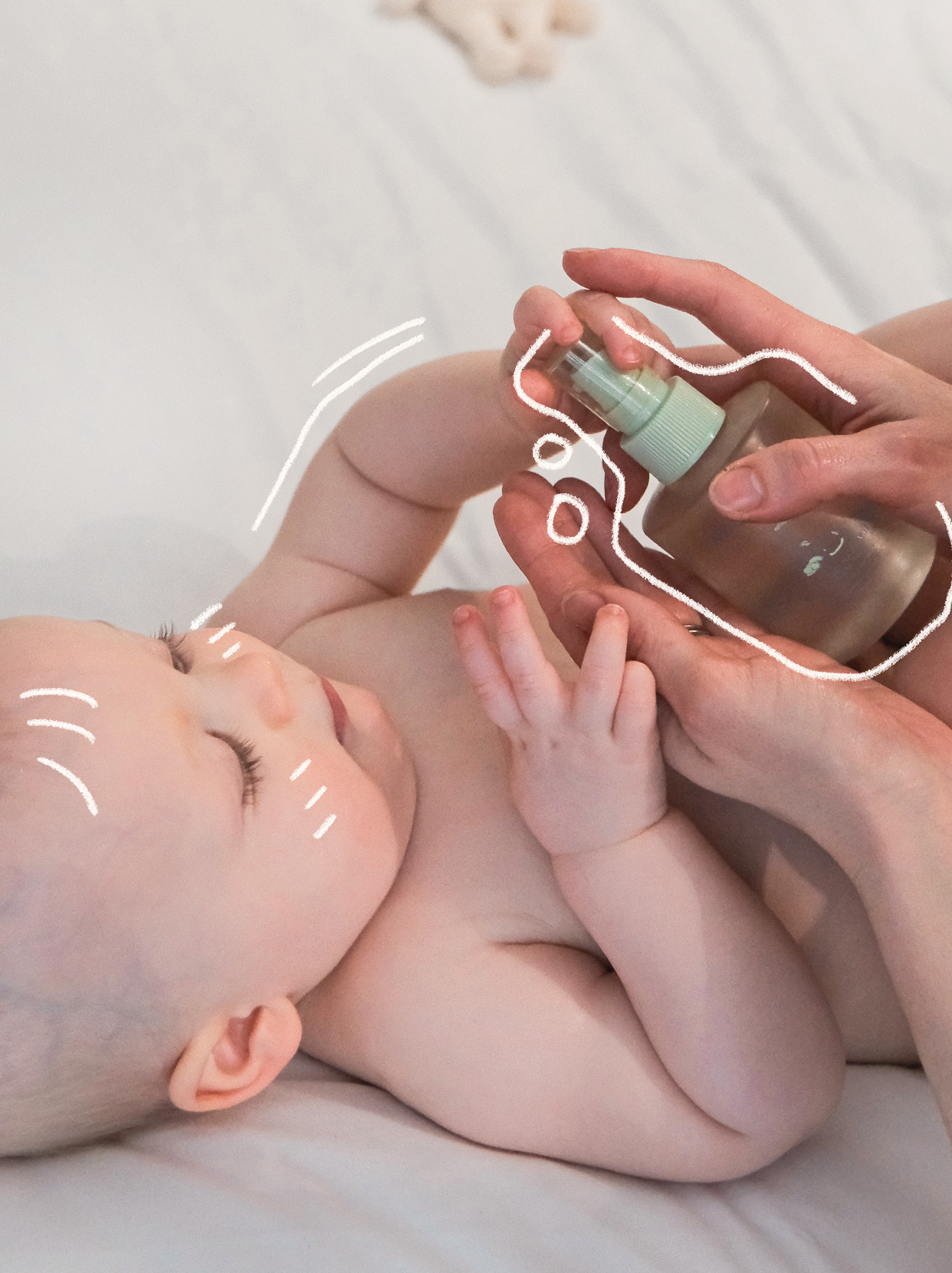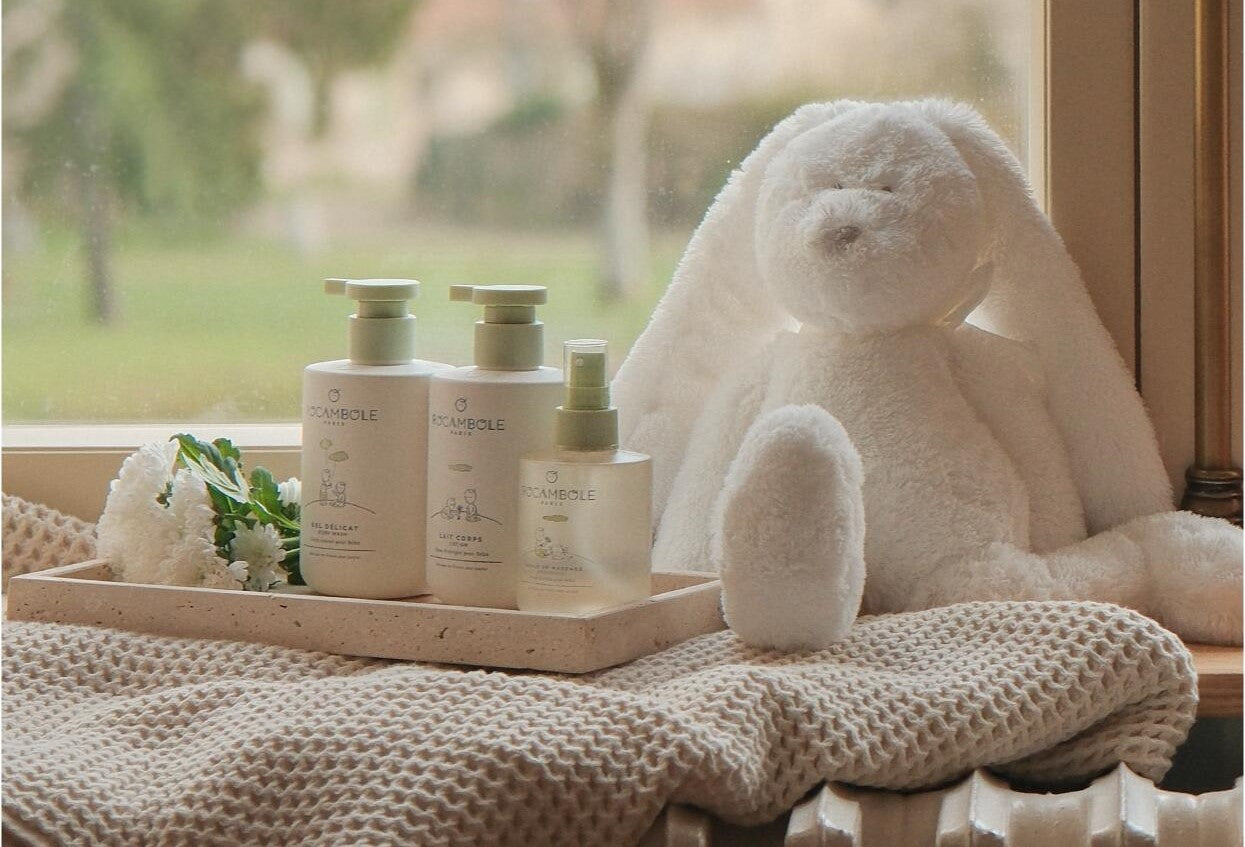Fréquence des Bains d'un Nouveau-né : Guide Pratique pour les Parents
L’arrivée d’un bébé peut soulever de nombreuses questions pour les nouveaux parents, notamment en ce qui concerne les soins de la peau et l'hygiène. L’une des préoccupations fréquentes est : "À quelle fréquence faut-il donner un bain à un nouveau-né ?". Bien qu’il puisse sembler que votre bébé ait toujours besoin d’être nettoyé, il faut comprendre que les nouveau-nés ne sont pas aussi sales que les enfants plus âgés, et leur peau délicate nécessite des soins particuliers.
Voici un guide pratique pour vous aider à répondre à cette question et à prendre soin de la peau de votre tout-petit.
1. La Fréquence des Bains
Contrairement à ce que l'on pourrait penser, les nouveau-nés n’ont pas besoin d’un bain quotidien. En fait, 2 à 3 bains par semaine suffisent pour la majorité des bébés, tant que vous nettoyez quotidiennement les zones essentielles comme la bouche, le visage et les couches.
Pourquoi si peu de bains ?
- Peau sensible : La peau des nouveau-nés est très fine et fragile. Un bain trop fréquent peut dessécher la peau, ce qui la rend plus susceptible d'irriter et de s'assécher.
- Risque de froid : Un bain trop fréquent peut aussi perturber la température corporelle du bébé, surtout les premiers jours après la naissance. Il est donc préférable de commencer avec des bains peu fréquents.
2. Le Premier Bain
Le premier bain de bébé n’a pas besoin d’être donné avant 24 heures après la naissance. En fait, attendre 24 heures avant le premier bain permet de maintenir la vernix (la substance blanche qui recouvre la peau du bébé) qui a des propriétés antibactériennes et protège la peau du bébé. De plus, cela permet de maintenir la température corporelle et la glycémie de votre bébé.
3. Les Risques de Trop de Bains
Donner trop de bains à un nouveau-né peut entraîner un dessèchement excessif de sa peau. La peau des bébés étant plus mince que celle des adultes, elle est plus vulnérable aux irritations causées par des produits de bain agressifs et la chaleur de l’eau. C'est pourquoi il est recommandé de limiter les bains et de privilégier des nettoyages ciblés entre les bains, en utilisant des lingettes pour bébé et en nettoyant soigneusement les zones sensibles, comme les plis de la peau et les fesses.
4. Conseils pour Prévenir le Dessèchement de la Peau
Le bain peut potentiellement dessécher la peau de votre bébé, mais il existe des moyens de minimiser ce risque.
a. Bains courts
Il est préférable de limiter la durée des bains à environ 5-10 minutes pour éviter que la peau de bébé ne soit trop exposée à l’eau chaude.
b. Produits doux
Utilisez des produits de bain spécialement conçus pour la peau délicate des bébés, de préférence avec des ingrédients naturels tels que :
- Aloe vera
- Huile d’avocat
- Cire d'abeille
- Huile de jojoba
- Beurre de karité
- Calendula
Ces ingrédients sont connus pour leurs propriétés hydratantes et apaisantes.
c. Lotion pour bébé
Après le bain, appliquez une lotion pour bébé sur la peau encore légèrement humide pour maintenir l'hydratation. Veillez à utiliser une lotion douce, sans parfum ni produits chimiques agressifs.
5. Quand Faire un Bain ?
Le moment idéal pour donner un bain à votre bébé dépend de votre emploi du temps et de vos préférences. Il est généralement conseillé de donner un bain à votre bébé quand vous êtes calme et détendu pour que l'expérience soit agréable pour vous deux.
Il est important de ne pas donner de bain à votre bébé juste après une tétée, car il a besoin de temps pour digérer. Vous pouvez choisir un moment de la journée où vous avez le plus de temps et où bébé est calme.
6. Maintenir la Peau de Bébé Hydratée
- Éviter les températures extrêmes : Que ce soit à l’intérieur ou à l’extérieur, assurez-vous que la température ambiante ne soit ni trop chaude ni trop froide. Les environnements secs ou très chauds peuvent déshydrater la peau fragile de votre bébé.
- Hydratation interne : Assurez-vous que votre bébé boive suffisamment de lait maternel ou de lait infantile chaque jour pour maintenir une bonne hydratation interne.
- Utiliser un humidificateur : Si l’air de votre maison est sec, un humidificateur peut être très utile pour éviter que la peau de votre bébé ne se dessèche.
7. Comment Donner un Bain à Votre Nouveau-né
Si vous êtes prêt à donner un bain à votre bébé après la chute du cordon ombilical (généralement autour de 1-2 semaines), voici quelques conseils pour rendre le bain aussi sûr et agréable que possible :
a. Préparez le matériel
Assurez-vous d’avoir tous les produits nécessaires à portée de main : une petite baignoire pour bébé, une serviette douce, un savon doux pour bébé, un gobelet pour rincer, et un vêtement propre.
b. Température de l'eau
L’eau du bain doit être tiède, autour de 37°C (98,6°F), et vous ne devez utiliser que quelques centimètres d'eau dans la baignoire. Testez toujours la température de l'eau avec votre poignet ou votre coude avant de plonger bébé.
c. Sécuriser bébé
Ne jamais laisser bébé sans surveillance dans l'eau, même pendant un instant. Tenez-le fermement en tout temps, en soutenant sa tête et son cou.
Conclusion : L’Essentiel à Retenir
En résumé, il n’est pas nécessaire de donner un bain à votre bébé tous les jours. Deux à trois bains par semaine suffisent pour maintenir une bonne hygiène, tout en préservant la santé de sa peau. Assurez-vous de bien nettoyer les zones essentielles (visage, fesses) quotidiennement entre les bains et de choisir des produits doux adaptés à la peau de bébé.
Références :





